detail profile sissani mohamed djediat
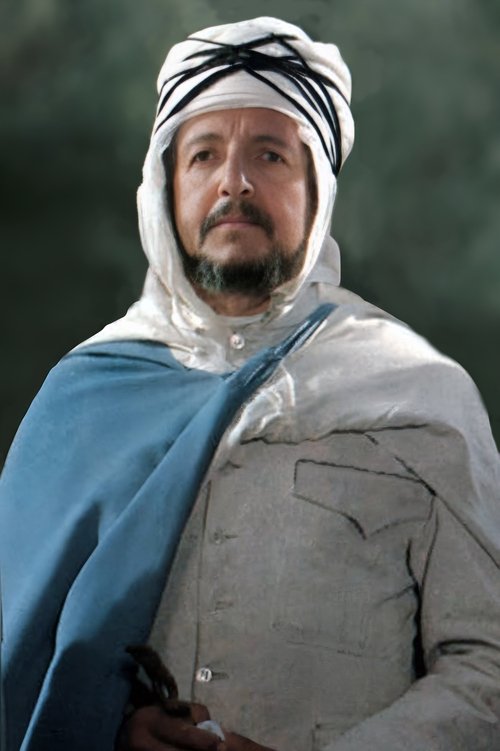
Sissani (Mohamed Djediat)
Mohamed Djediat
atau dikenal sebagai
Riwayat Hidup
Real name Mohamed Djediat, Sissani, born September 26, 1920 in Algiers, is an Algerian actor and production director.
In 1933, he attended the Chabiba school.
A few years later, while he was in Nadi Taraqi, Bachetarzi asked a few students to give new blood to his troop.
Sissani will be part of this promotion which will join Mansali, Benchoubène, Keltoum, Habib Réda and others.
His first steps on stage led him indifferently to the musical or theatrical part of the Mahieddine troupe's shows.
He played music in the Réda Bey troupe, played in radio plays and played roles in television films since 1952 (El Yakachine by Ali Abdoun).
He also had fun launching a publishing house El Kawakib whose hundredth disc would include the song “Meghdour Mimouna” performed by the duo Soudani and Hachemi (Respectively Sissani and Guerouabi).
At the Algiers Opera, he was the one-man band: actor, on occasion, acting director.
Considering himself a tragic and comic actor, he was present in almost all the TNA productions which he joined in 1966.
From Bab El Foutouh to Cahnt De La Forêt via Sekket Salama and Le Cercle de Craie Caucasien, on the stage, his presence is imposing.
In the cinema, he notably played in “Chronique des Années de Braise” by Mohammed Lakhdar-Hamina (1974), “Echebka” by Ghaouti Bendedouche (1976) and “Les Déracinés” by Mohamed Lamine Merbah (1976).
His last cinematographic role will be in "The Clandestine" by Benamar Bakhti (1989) during which the illness began to eat away at him.
Sissani, an accomplished artist, continued to practice his profession as an actor, braving illness, until his last breath on June 29, 2003, at the age of 83.
His son will say that Sissani died as he lived courageously with humor and a smile on his face.
he is buried in the El Alia cemetery in Algiers.
Info Pribadi
Peran Yang Di Mainkan Sissani (Mohamed Djediat)
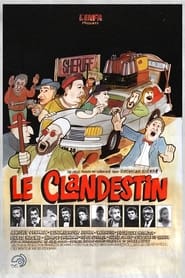 Nine people with Abdullah Le Clandestin...
Nine people with Abdullah Le Clandestin...Le Clandestin 1989
Nine people with Abdullah Le Clandestin (Illegal Taxi), in one car, on the way to Algiers.
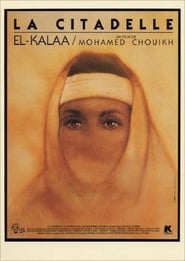 El Kalaa a village in southern...
El Kalaa a village in southern...The Citadel 1988
El Kalaa, a village in southern Oran. Although already married, old Sidi planned to marry another. He sets his sights on the beautiful Aïssa, with whom Kaddour, his adopted son, is in love. The old man decides to play a trick on Kaddour to teach him never to covet a woman that an elder wants to marry...
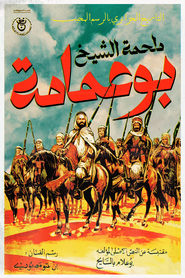 The story of the film revolves...
The story of the film revolves...The Epic of Cheikh Bouamama 1985
The story of the film revolves around the epic of Sheikh Bouamama, a leader of the national resistance in Algeria during the French colonial era. The events are taking place in southwestern Algeria. The film also tells about different stages of the resistance, especially about one of the uprisings of the Algerian people, namely "the battle of the sons of Sidi Sheikh Bouamama", in which French General Leuti was appointed to try to suppress and end this resistance.
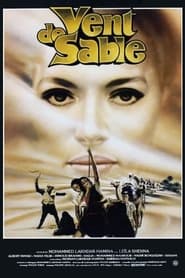 Seen right through the sandstorms that...
Seen right through the sandstorms that...Sandstorm 1982
Seen right through the sandstorms that rack the lives of a tribe living on a desert oasis, is a subtle and not-so-subtle mistreatment of the female members of the tribe - tribal chiefs have the right to be the first to deflower virgins, and single or widowed mothers must walk a narrow line of behavior restrictions that do not apply to their male counterparts. Both genders, however, fight the brunt of the harsh desert winds together.
 Maamar Sid Ali Kouiret a young...
Maamar Sid Ali Kouiret a young...Echebka (الشبكة) 1976
Maamar (Sid Ali Kouiret), a young fisherman working in a small port in western Algeria, is forced to sell his goods at a discount every day to Si Khelifa (Abdelhalim Rais), owner of many trucks and a cannery where the wives work fishermen. He has a strange encounter. As he returns from fishing, bassinet in hand, he witnesses a car accident. Indeed, a car hits a tree with a beautiful girl “Hayat” on board who has lost consciousness. Maamar pulls her out of the car and saves her. It is at this precise moment that he realizes the existence of another world. As if awakened from a long sleep, he realizes that this exploitation can no longer continue. He leaves his village and his wife Laâlia (Fatima Belhadj) on a whim for three years. He finds himself in the capital which he leaves to return to his village and carry out a saving action...
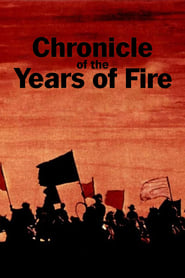 A meticulous chronicle of the evolution...
A meticulous chronicle of the evolution...Chronicle of the Years of Fire 1975
A meticulous chronicle of the evolution of the Algerian national movement from 1939 until the outbreak of the revolution on November 1, 1954, the film unequivocally demonstrates that the "Algerian War" is not an accident of history, but a slow process of suffering and warlike revolts, uninterrupted, from the start of colonization in 1830, until this "Red All Saints' Day" of November 1, 1954. At its center, Ahmed gradually awakens to political awareness against colonization, under the gaze of his son, a symbol of the new Algeria, and that of Miloud, half-mad haranguer, half-prophet, incarnation of Popular memory of the revolt, the liberation of Algeria and its people.
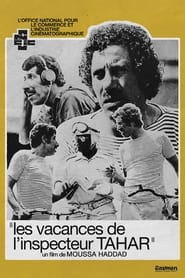 Inspector Tahar and his apprentice are...
Inspector Tahar and his apprentice are...Inspector Tahar's Holiday 1972
Inspector Tahar and his apprentice are invited by Mama Traki, a popular Tunisian heroine, to spend their vacation in Tunis. Before leaving Algiers, they stop at a tourist complex where a murder has just been committed. The investigation full of surprises and twists and turns will take them to Tunis where they will find Ommi Traki and his family...
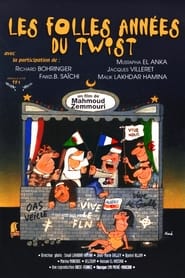 A small town in Algeria in...
A small town in Algeria in... On his return to Algeria Belkacem...
On his return to Algeria Belkacem...